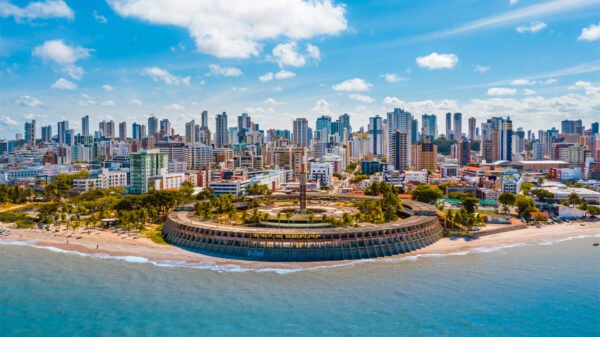The name is simple, but the impact on your wallet can be complex. Property tax (IPTU). Four little letters that carry much more than a tax: they carry part of the strategy—or the trap—that every real estate investor needs to master.
In this article, I'll show you how the IPTU game works in João Pessoa, which pieces are on the board, and, of course, how to play smart.
The basics — no fluff
IPTU (Urban Property and Land Tax) is a municipal tax. It is levied on property, possession or useful domain of urban real estate. If you own a plot of land, a house, an apartment, or a commercial space, you're in the game.
In João Pessoa, the charge is governed by the Municipal Tax Code (CTM) and can be checked on the official "IPTU/TCR" portal. And yes, the payment slip already includes the TCR (Waste Collection Fee).
The value formula: PGV + tax rate
It all starts with the famous Generic Value Plan (PGV). It determines the market value of your property—that is, how much the city understands it to be worth for tax purposes. And no, this value isn't always in line with market value. In many cases, it's outdated. In others, it's overestimated.
The rate depends on the use of the property:
-
1% for residential;
-
1.5% for commercial, services and land;
-
2% for special services (such as banks and large chains).
Did you multiply market value × tax rate? You arrived at the gross amount.
Now comes the trick: the discounts.
Discounts in 2025: up to 20% in savings
This year's single quota has been extended until March 31st with 15% discount. Whoever was up to date won plus 5% bonus — that is, until 20% off on the bill. Installments? Up to 10 times.
Only then, those who planned ahead saved enough to cover a few months' condo fees.
Exemption and incentives: there is an opportunity there
There are specific laws that allow total or partial exemption of the IPTU (property tax) in strategic cases — such as revitalization programs, listed properties, and urban development initiatives. If you invest in Historic Center, for example, is worth investigating.
What's more, there are exemptions for low-income families, socially-used properties, and others. It all depends on whether you're aware of the complementary laws and current decrees.
Mistakes that eat away at your cash flow
Want to know where investors lose money without realizing it? Take note:
-
Wrong market value: If the built area, construction standard, or registered use are incorrect, the tax will be increased. Request a review.
-
Losing discount due to carelessness: ignore the single quota and extension deadlines.
-
Lack of knowledge of actual use: Is residential property taxed as commercial? More common than it seems.
-
Accept the guide without question: Value well above market value? Document and dispute.
And what does the connected investor do?
He does what I do: check line by line from the property registry. Built-up area, tested area, topography, standard, use, corner. All of this impacts the calculation basis. Is there an error? File a review.
And if the property is in an area with potential incentives — such as downtown, neighborhoods of economic interest, or regions with ongoing urban planning — the investor can already get ahead of the curve and pursue the expected exemption or reduction.
João Pessoa is watching: PGV under review
Behind the scenes, the municipality has already signaled studies and diagnostics to review the PGV. This means that changes will come — and those who understand the game anticipate it.
If the new PGV brings higher values (which is likely, given the real price increase in neighborhoods like Cabo Branco, Altiplano and Jardim Oceania), the impact on IPTU will be immediate.
And what does the data show?
The average appreciation of neighborhoods such as:
-
Altiplano: growth above inflation in the last 12 months;
-
Oceania Garden: continuous increase in the average rent per m², signaling greater demand;
-
Manaíra and Tambaú: are stable, but with rental yields still competitive for long-term investors.
That is, the current market value is already outdated in some cases — which means there is still room for IPTU growth based on future reviews.
Progressive IPTU: the social function of property
If you have unused land, pay attention: João Pessoa is already discussing the application of the Progressive IPTU over timeThis penalizes undeveloped or underutilized properties. Strategy? Either you build, or you pay more for leaving the land vacant.
Conclusion
IPTU is not just a tax. It is an urban management tool, a sign of appreciation and a strategic piece on the investor's board.
📌 In João Pessoa, understanding the IPTU (property tax) means understanding where the city is headed — and positioning yourself ahead of the curve.
If you have a real estate portfolio, it is worth doing a detailed technical review: area, use, market value, incentives and PGV scenario.
If you'd like, I can help you with a personalized verification guide and even a review request template. Because in my game, there's no room for paying incorrect taxes.






















